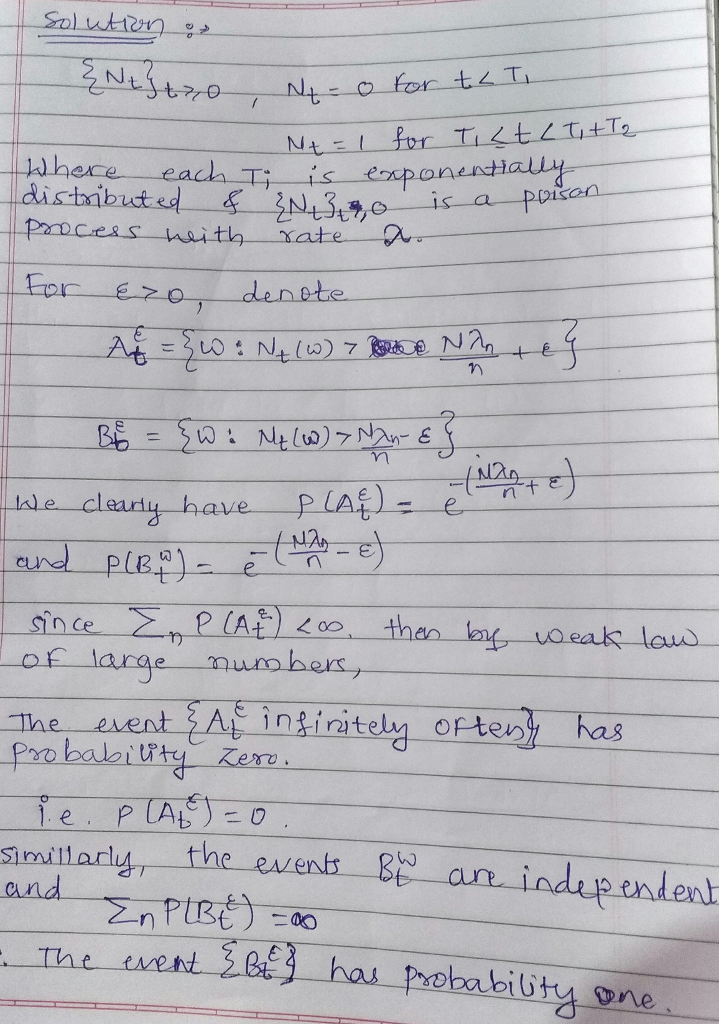Question: prove by induction 2^2 + 4^2 + 6^2 + ... + (2n)^2 = (2n)(2n+1)(2n+2)/6 ANSWER we will use induction on n base case : n=1 we have, 2^2 = 2*3*4/6 = 4 which is true inductive hypothesis let it be true for n = k i.e., 2^2 + 4^2 + ... + (2k)^2 = [(2k)(2k+1)(2k+2)]/6 inductive case let n = k+1 then we have 2^2 + 4^2 + .... + (2k)^2 + (2(k+1))^2 = [(2k)(2k+1)(2k+2)]/6 + (2k+2)^2 =(2k+2)*[(2k)(2k+1)/6 + (2k+2)] =(2k+2)*[ (4k^2+2k)/6 + (12k + 12)/6 ] =(2k+2)*[ (4k^2+14k+12)/6 ] = =(2k+2)*[(2k)(2k+1)/6 + (2k+2)] =(2k+2)*[ (4k^2+2k)/6 + (12k + 12)/6 ] =(2k+2)*[ (4k^2+14k+12)/6 ] = (2k+2)*[ (4k^2 + 8k + 6k + 12)/6 ] = (2k+2)*[ (4k(k + 2) +6(k+2))/6 ] = (2k+2)*[ (4k+6)(k+2)/6 ] = (2k+2)*[ 2 (2k+3)(k+2)/6 ] = (2k+2)*[ (2k+3)*2*(k+2)/6 ] = (2k+2)*[ (2k+3)(2k+4)/6 ] = [(2*(k+1))(2*(k+1)+1)(2*(k+1)+2)]/6 replacing k+1 by m, we get replacing k+1 by m, we get [(2*m)(2*m+1)(2*m+2)]/6 this completes our proof b...

2.1.14. Let X1, X2 be two random variables with joint pmf p(x1, x2) = (1/2)x1+x2 ,
ReplyDeletefor 1 ≤ xi < ∞, i = 1, 2, where x1 and x2 are integers, zero elsewhere. Determine
the joint mgf of X1, X2. Show that M(t1, t2) = M(t1, 0)M(0, t2).
2.2.6. Suppose X1 and X2 have the joint pdf fX1,X2 (x1, x2) = e−(x1+x2)
ReplyDelete, 0 < xi <
∞, i = 1, 2, zero elsewhere.
(a) Use formula (2.2.2) to find the pdf of Y1 = X1 + X2.
(b) Find the mgf of Y1.